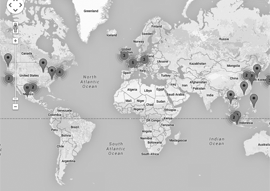[row_container full_width=”yes” dark=”yes” padded=”no” bgr_url=”https://www.chainsequence.com/wp-content/uploads/2015/09/CustomHeaderBackground.jpg” bgr_parallax=”no”]
[column width=”2/3″ position=”first”]
[big_heading centered=”no”]Consulting Services[/big_heading]
[heading centered=”no” margin_bottom=”no” large=”no” background=”no”] [/heading]
[/column]
[column width=”1/3″ position=”last”]
[big_heading centered=”no”][icon icon=”bar-chart” color=”white” size=”large” icon_solid=”no”][/icon][/big_heading]
[/column]
[/row_container]
[row_container dark=”no” padded=”no” bgr_url=”” bgr_parallax=”no”]
Capacity Modeling Assessment
[/row_container]
[row_container dark=”no” padded=”no” bgr_url=”” bgr_parallax=”no”]
[column width=”eight” position=”first”]
[heading centered=”no” margin_bottom=”no” large=”no” background=”no”]When the forecast calls for rain…..
[/heading]

[/column]
[column width=”eight” position=”last”][spacing margin=”no” border=”no”][/spacing][spacing margin=”no” border=”no”][/spacing]
[heading centered=”no” margin_bottom=”no” large=”no” background=”no”]Protect against Volatile Business Climates with Our Capacity Modeling Assessment[/heading][wbcr_html_snippet id=”4520″]
Too many organizations either don’t model their capacity, or try to model finite scheduling capacity within their rough-cut model.
The result – capacity shortages occurring when it’s too late to recover, or a model with a level of precision that doesn’t provide value for the level of effort required to constrain a plan over an 18+ month demand horizon.
ChainSequence and Expero have joined forces to offer a rapid-response solution that evaluates key areas of your Supply Chain’s organization’s current capability to model and manage long-term capacity for rough-cut planning. Our team then recommends improvements based on your specific capacity modeling requirements:
[checklist type=”checked” margin_bottom=”no”]
[/checklist] | [checklist type=”checked” margin_bottom=”no”]
[/checklist] |
[/column]
[/row_container]
[row_container dark=”no” padded=”no” bgr_url=”” bgr_parallax=”no” css_class=”row_topline_dark_blue_light”]
[heading centered=”no” margin_bottom=”no” large=”no” background=”no”]Recognize these issues? Fill out the contact form below to find out how you can avoid the storm!
[/heading]
[/row_container]
[row_container dark=”no” padded=”yes” bgr_url=”” bgr_parallax=”no” css_class=”row_color_light_blue”]
[column width=”eight” position=”first”]
[spacing margin=”no” border=”no”][/spacing]
[checklist type=”checked” margin_bottom=”no”]
- “Capacity is rarely a constraining issue……until it is, and then it’s a chaotic event”
- “Rough-cut capacity modeling isn’t accurate enough”
- “The complexities of manufacturing our products make it difficult to define a reasonably accurate capacity model”
[/checklist]
[/column][column width=”eight” position=”last”]
[spacing margin=”no” border=”no”][/spacing]
[checklist type=”checked” margin_bottom=”no”]
- “Capacity planning is more reactive than proactive”
- “Supply commits to our customers are unreliable”
- “We have advanced planning technology in place, but don’t understand how to configure it to support our own capacity model”
- “Volatile demand is wreaking havoc on our capacity planning”
[/checklist]
[/column]
[/row_container]
[row_container dark=”no” padded=”yes” bgr_url=”” bgr_parallax=”no” css_class=”row_topline_dark_blue_light”]
[column width=”eight” position=”first” ][spacing margin=”no” border=”no”][/spacing]
Rough-cut Capacity Modeling Can be Complicated
[checklist type=”minus” margin_bottom=”no”]
- Many diverse product lines
- Shared capacities across multiple product lines
- Complex product structures
- Multi-sourced locations
- Potential constraints in tools, labor, warehousing, and distribution
[/checklist]
These can make capacity modeling challenging, but not impossible –
The key word is “Rough-cut”; Reasonably accurate vs. precisely wrong
[/column]
[column width=”eight” position=”last”][spacing margin=”no” border=”no”][/spacing]
Benefits of our Capacity Modeling Assessment
[checklist type=”plus” margin_bottom=”no”]
- Discover key strengths and weakness of your current process
- Evaluate usability and effectiveness of your current capacity modeling
- Improve consistency of current process with future vision of policies and procedures
- Recommend enhancements for a more proactive model with higher supply reliability
- Propose visualization/representation of your organization’s capacity model
[/checklist]
[/column]
[/row_container]
[row_container full_width=”no” dark=”no” padded=”yes” bgr_url=”” bgr_parallax=”no”]
[wbcr_html_snippet id=”4520″]
[/row_container]
[row_container full_width=”no” dark=”no” padded=”yes” bgr_url=”” bgr_parallax=”no”]
[column width=”1/2″ position=”first”]
[heading centered=”no” margin_bottom=”no” large=”no”]Contact Us Now[/heading]
Whether you have a capacity model in place, or none at all, the ChainSequence and Expero Team can help. Contact us today to start your capacity modeling assessment and stay ahead of the storm!
[spacing margin=”no” border=”no”][/spacing][spacing margin=”no” border=”no”][/spacing][spacing margin=”no” border=”no”][/spacing]
 |  |
[/column]
[column width=”1/2″ position=”last”]
[contact-form-7 id=”4475″ title=”Contact us form”]
[/column]
[/row_container]
[row_container full_width=”no” dark=”no” padded=”no” bgr_url=”” bgr_parallax=”no”]
[spacing margin=”no” border=”no”][/spacing]
[spacing margin=”no” border=”no”][/spacing]
[spacing margin=”no” border=”no”][/spacing]
[heading centered=”no” margin_bottom=”yes” large=”no” background=”yes”]Honors and Awards[/heading]
[gslogo id=1 speed=”20000″ ticker=”1″ inf_loop=”0″ logo_cat=”Awards”]
[/row_container]


